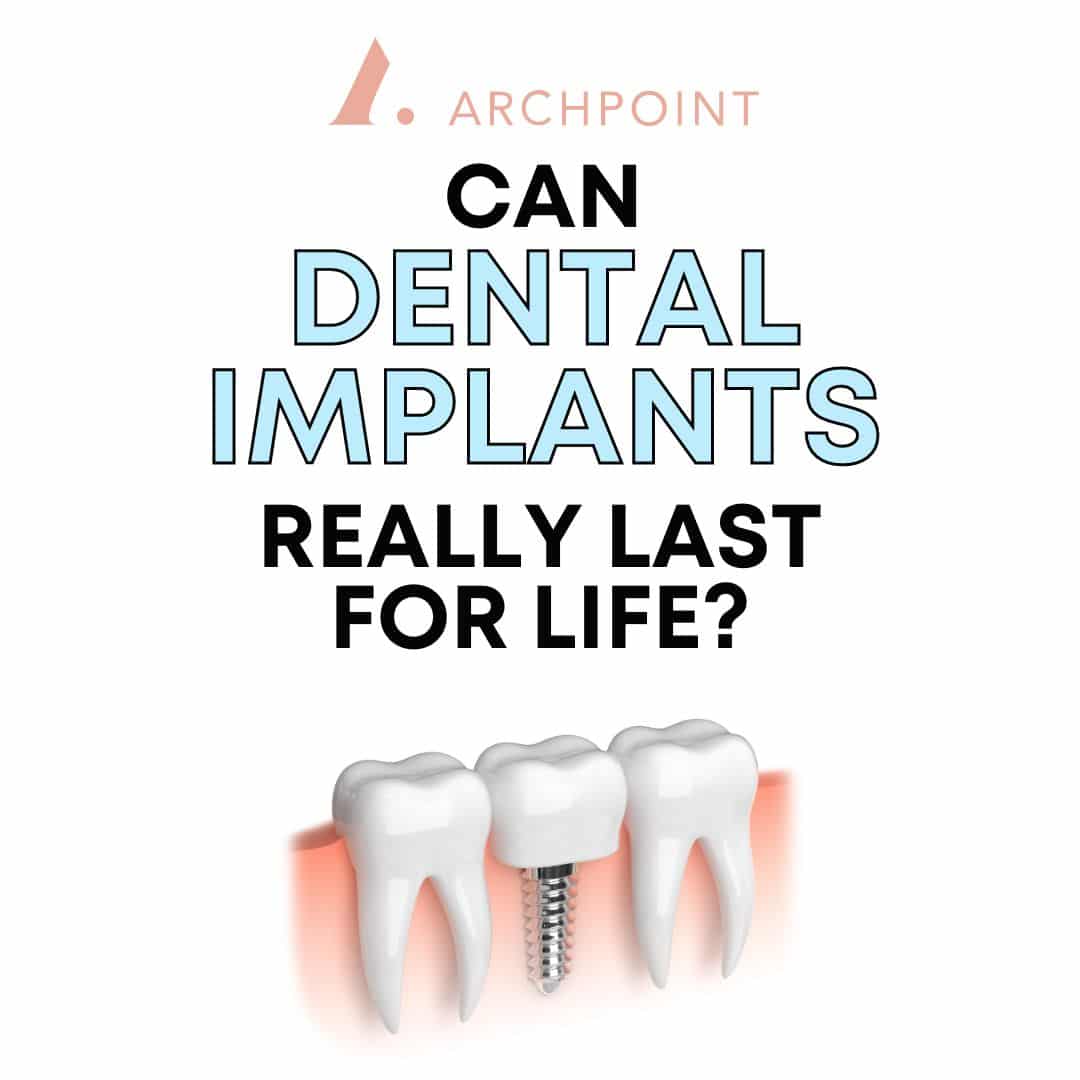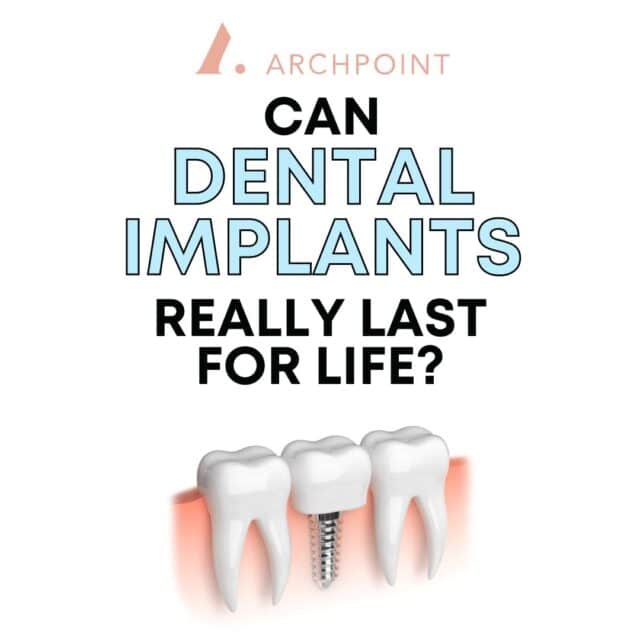
Dental implants are a popular choice for replacing missing or damaged teeth due to their high success rate and long-term durability. How long do dental implants last? Is it true that dental implants can last for the rest of your life? Yes, but there are certain things to keep in mind.
In most cases, dental professionals trust that dental implants can last for a lifetime if properly cared for and maintained. Additionally, factors such as the health of the patient and the experience of the implant surgeon also play a role.
Here’s a closer look at why dental implants are considered a long-lasting and cost-effective option for tooth replacement:
Integration With Your Bone (“Osseointegration”)
One of the key features of dental implants is their ability to integrate with the jawbone that supports them. How long dental implants last depends on it. When a dental implant is placed in the bone, it fuses with the bone tissue over time through a process called osseointegration. This stabilization period helps to create a strong and secure foundation for the implant in the years ahead. In contrast, other tooth replacement options, such as dentures and bridges, do not integrate with the jawbone and rely on the surrounding teeth or gum tissue for support.
The reason osseointegration is crucial is that it allows the implant to become a permanent part of your oral anatomy. Most implants are made out of titanium. Our bone tissues find titanium naturally attractive, which triggers the bone to create new cells that fuse onto the implant surface. As long as proper osseointegration occurs, there is little to no chance of the implant going anywhere (assuming the area is cleaned and maintained as directed.)
Extremely High Success Rate
Dental implants have a high success rate, with studies showing a success rate of 95-98% or higher, which is even better than “tried and true” treatments like dental fillings, crowns, and bridges. This means that the vast majority of dental implants are even more successful than other types of tooth replacements available. It’s perfectly normal not to have a time restriction on how long dental implants last.
Longevity vs. Other Restorations
Dental implants are generally considered to be more durable and long lasting compared to other tooth replacement options. In contrast, other tooth replacements, such as dentures and bridges, must be replaced or adjusted semi-frequently. They don’t last as long as dental implants do. These restorations wear out, or the supporting tooth underneath them does, requiring a complete re-do every several years or so. While dentures and bridges may need to be replaced every 5 to 10 years, how long dental implants last can be several decades or even a lifetime with proper care. Financially speaking, implants offer a better return on investment.
Dental implants do not require the surrounding teeth to be altered or damaged in any way, as is often the case with bridges. This makes them a more conservative and long-lasting option for tooth replacement because they can function independently of any other teeth.
A Financially Savvy Decision
While dental implants may have a higher upfront cost compared to other tooth replacement options, they are generally considered to be a cost-effective investment in the long run because you’re only paying for them once. Because they have a high success rate, a low rate of complications, and a long lifespan, they do not need to be replaced as frequently—or at all—compared to the other options out there. It’s a one-time investment that outlasts and outperforms every other tooth replacement.
How to Protect Your Implants
If you want your dental implants to last forever, there are a few specific things you must do, including:
Floss around your dental implant(s) every day.
Plaque buildup around dental implants can lead to a type of gum disease known as “peri-implantitis.” Peri-implantitis is the leading cause of implant failure, so good oral hygiene is essential. Make sure to floss or use a water flosser around every implant, every day, removing buildup just along the gumlines.
For fixed multi-tooth restorations, make sure you thread the floss or use the water flosser under your prosthesis, next to the gum tissues. This will remove plaque and food debris from spaces a toothbrush won’t reach.
Brush your implant(s) twice a day.
Use a soft-bristled toothbrush to clean all of your dental implant restorations and gumlines thoroughly two times a day. Make sure you’re brushing for a minimum of two minutes at a time. If you have any natural teeth remaining, be sure to use a fluoride toothpaste.
Schedule regular checkups and cleanings every six months.
See our implant provider for regular dental exams twice a year. We’ll thoroughly evaluate your gum and bone tissues to ensure your implants are stable and that the supporting areas are healthy. A professional cleaning will remove buildup and stain that accumulates between checkups, leaving you with a fresher smile that’s easy to care for.
Address symptoms of gum disease ASAP.
If you exhibit any signs or symptoms of a gum infection, let our DFW implant dentists know immediately. Redness, swelling, or bleeding gums are nothing to take lightly if you have dental implants. Fortunately, minor gingivitis can be reversed with professional cleanings and good oral hygiene. But if symptoms persist for more than a couple of weeks, you could be developing peri-implantitis.
How Long Will My Dental Implants Last?
While no dental restoration is guaranteed to last forever, dental implants come pretty close to it. Especially when you care for them as directed. Implants have a high success rate and a long lifespan, making them a great investment for most people with missing teeth.
As long as you practice good oral hygiene, see a dentist for regular checkups, and keep your gums healthy, you can feel confident knowing you’re doing everything in your ability to make sure your implants last as long as possible.
DFW Dental Implants
If you are considering dental implants, it is important to discuss your options with our qualified implant specialists, who can help you make an informed decision based on your specific needs and goals. Call ARCHPOINT today to get started!








